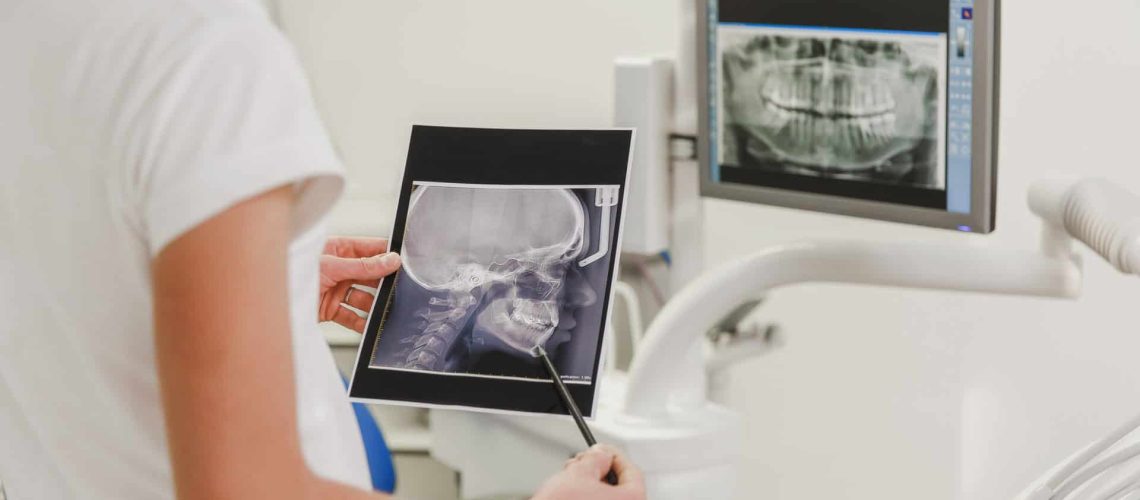Do you have to be sedated for wisdom teeth removal? Your wisdom tooth or teeth may need to be removed for many reasons: the presence of an infection, a cavity, cracked, orthodontic reasons, pathologic reasons, gum disease, crowding of your teeth, compromise of the adjacent teeth, or preventative reasons. Your dentist probably explained why you needed to remove your wisdom teeth for some of these reasons. One of your main concerns is “Will the procedure hurt?” You have the option of sedation (asleep) or local anesthesia (numbing dental shots). Which one do you choose? What will your dentist or oral surgeon recommend? Your dentist or oral surgeon will offer both options but will provide recommendations. How would you decide if it’d be better to be asleep for the procedure or to be fully awake?

Types of Sedation for Wisdom Teeth Removal
When it comes to wisdom teeth removal, there are several sedation options available to help you relax. The type of sedation you choose will depend on your comfort level, the complexity of the procedure, and your dentist’s recommendation. Deep sedation and moderate sedation are also options, with deep sedation being particularly useful for patients with high dental anxiety or lengthy procedures, and moderate sedation providing a balanced state of consciousness.
Local Anesthesia
With the local anesthesia (dental shots) option, you will be fully awake and aware of everything that occurs during the procedure. Of course, dental offices will make the experience as pleasant as possible. You may feel pressure or movement, but the sensation will be minimized. Local anesthesia is an effective, cost-efficient option for those who prefer to stay awake, especially if only one or two teeth need to be removed and the procedure is straightforward. However, if the idea of being awake makes you uncomfortable, this may not be the best choice for you.
Nitrous Oxide (“Laughing Gas”)
Nitrous oxide is a mild form of sedation where you breathe in a mixture of nitrous oxide and oxygen through a mask. It’s designed to help you feel calm and relaxed while remaining conscious. This option is often combined with local anesthesia for added comfort. Nitrous oxide is great if you want to take the edge off but don’t want to be fully sedated. It wears off quickly, and you can usually drive yourself home after the procedure.
IV Sedation
Sedation anesthesia will put you into an induced state of deep sleep where you will be comfortable and often unable to recall the events that transpired during the procedure. IV sedation offers a deeper level of relaxation and is administered directly into your bloodstream. Under IV sedation, you’ll be in a “twilight” state—meaning you may not remember much, if anything, about the procedure. This option is ideal for patients with high anxiety or for more complex wisdom teeth extractions, such as impacted or deeply rooted teeth. With IV sedation, you’ll need a ride home, as you’ll feel groggy after the procedure.

Here are some factors that your doctor may consider to decide if sedation may be the better option.
- If the wisdom teeth are infected. Often with an infection present around the wisdom teeth, the dental shots alone may not provide the complete local anesthesia (numbing) to complete the procedure. Sedation probably will be recommended.
- Level of anxiety. Often patients are very apprehensive about having any type of procedures, especially surgical procedures in their mouths. For comfort and better compliance during the procedure, sedation may be a great option.
- The position of the teeth. Wisdom teeth can be located deep in the jaw bones (where drilling is required to facilitate removal) or maybe near vital structures such as nerves and blood vessels. The dentist or oral surgeon may recommend sedation if this is the case.
Your doctor must be specifically trained in sedation and must have special anesthesia equipment present in the office. The recovery from sedation usually takes less than a day. Sedation is a separate cost from the teeth removal procedure and often dental insurances cover sedation.
Benefits of Sedation for Wisdom Teeth Removal
Sedation isn’t just about avoiding pain—it’s about ensuring you feel calm and at ease during what might otherwise be a nerve-wracking experience. Different sedation options are available for patients getting their wisdom teeth removed, each with its benefits and considerations. Here are some of the key benefits of opting for sedation during wisdom teeth removal:
- Reduced Anxiety: If you’re nervous about the procedure, sedation can help you feel more relaxed and calm.
- Comfort: Sedation ensures you’re as comfortable as possible during the procedure, especially if you have a lower pain tolerance.
- Faster Procedure: When you’re sedated, your dentist or oral surgeon can often complete the procedure more efficiently, as they won’t have to pause to manage your discomfort or anxiety.
What to Expect During Sedation
The experience of sedation dentistry can vary depending on the type of sedation used and your response. Here’s a general overview of what you can expect:
- Preparation: You will be seated comfortably in the dental chair and prepared for the procedure.
- Administration: The sedation medication will be administered either through an IV, orally, or through inhalation.
- Relaxation: You will begin to feel relaxed and calm, and may feel drowsy or sleepy.
- Procedure: The dentist or oral surgeon will perform the procedure, which may include wisdom teeth removal, tooth extraction, or other oral surgery.
- Memory: You may not remember much of the procedure, or you may feel like you were asleep.
- Post-Procedure Monitoring: After the procedure, you will be monitored for a period to ensure you are recovering well from the sedation.
- Residual Effects: You may feel some residual effects from the sedation, such as dizziness or fatigue, but these should wear off within a few hours.
It’s essential to have a companion drive you home after the procedure and to follow any post-operative instructions provided by your dentist or oral surgeon.

Preparing for Wisdom Teeth Removal with Sedation
If you and your oral surgeon decide that sedation is the right choice, there are a few things you’ll need to do to prepare. In most cases, you’ll be asked to fast (no food or drink) for several hours before your procedure. You’ll also need someone to drive you home afterward since the sedation will make it unsafe for you to drive.
Recovery After Wisdom Teeth Removal
After your wisdom teeth are removed, it’s normal to experience some swelling, discomfort, and bleeding. Your oral surgeon will provide you with aftercare instructions, including what foods to eat, how to manage any pain, and when you can return to normal activities. Recovery after wisdom tooth extraction usually takes about a week, but you’ll start feeling better in just a few days. With sedation, you’ll likely feel drowsy and may need a day to fully recover from its effects, depending on the type of sedation used.
Choosing a Qualified Oral Surgeon
It’s important to ensure your oral surgeon is qualified and experienced in administering sedation. At Oral Facial Surgical Arts, our team is led by Dr. Ronald Achong, a Board-Certified Oral & Maxillofacial Surgeon, ensuring you’re in good hands whether you choose local anesthesia or sedation for your wisdom teeth removal.
Do you have to be sedated for wisdom teeth removal? Not necessarily. Whether you choose sedation or local anesthesia, the goal is to make your experience as comfortable and stress-free as possible. Your oral surgeon will guide you through the decision, so you feel confident and ready when the day of your procedure arrives.
If you have any questions or are ready to schedule your wisdom teeth removal, don’t hesitate to contact Oral Facial Surgical Arts. We’re here to help you every step of the way!
Dr. Ronald Achong is a Board Certified Oral & Maxillofacial Surgeon. For more information visit us at www.oralsurgicalarts.com or contact our office at 407-207-8005.



